Electronics & Communication Engineering
- About Us
- Previous HoD’s
- Faculty
- Staff
- Program
- R&D
- Laboratories
- Events
- Alumni
- Medal Awardees
- Gallery
ABOUT THE DEPARTMENT
GENESIS
The Department of Electronic and Communication Engineering (ECE), National Institute of Technology Delhi was established in 2010, immediately with the beginning of the Institute under the aegis of the Ministry of Human Resource and Development (MHRD), which is later renamed as Ministry of Education (MoE)Govt. of India. The Department is offering two Undergraduate Programmes as B. Tech in Electronics and Communication Engineering (ECE) and as B. Tech in VLSI Design and Technology.
There are two Postgraduate programs as M. Tech. in Electronics and Communication Engineering (ECE) and M. Tech. in Electronics and Communication Engineering (ECE [VLSI]) are also offered by the Department. The Department also offers Ph.D. and Post-Doctoral Fellowship (PDF) Programme in all relevant areas of Electronics and Communication and also in all interdisciplinary research areas.
It has excellent undergraduate/ postgraduate experimental/simulation and research facilities in various laboratories like, Optical Fibre Communication, Circuit simulation, Electronic Devices and circuits, Analog/ Digital/ Optical fibre/ multimedia Communication, Photonic measurements, RF & Microwave and Antenna & wave propagation, Electronic Measurements & Instrumentation, Microprocessor & Microcontroller, Advanced VLSI etc.
Presently the department has 14 regular faculty members, 06 technical non-faculty members and 02 office non-faculty members.
The Department of ECE has a blend of young as well as experienced dynamic faculty members and is committed to providing quality education and research in the field. Faculty members of the department have excellent academic & research credentials and published numerous peer-reviewed journal articles/papers, Books, Book Chapters, etc. in the diversified field and have adequate experience in advanced research. The department of ECE provides a creative learning environment to the students for excellence in technical education. Here the students learn to face the challenges related to emerging technologies in electronics and communication engineering. The department of ECE promotes a self- learning attitude, entrepreneurial skills, and professional ethics. The department hopes to achieve the national goals and objectives of industrialization and self-reliance. As a result, it hopes to produce graduates with strong academic and practical backgrounds so that they can fit into the industry immediately upon graduation.
VISION
Create an educational environment to prepare the students to meet the challenges of the modern electronics and communication industry through state of art technical knowledge and innovative approaches beneficial to society.
MISSION
- To promote teaching and learning by engaging in innovative research and by offering state-of- the-art undergraduate, postgraduate, and doctoral programs.
- To cultivate an entrepreneurial environment and industry interaction, leading to the emergence of creators, innovators, and leaders.
- To promote co-curricular and extra-curricular activities for the overall personality development of the students.
- Building of responsible citizens through awareness and acceptance of ethical values.
GOALS
- Effective teaching and learning with continuous improvement in curriculum.
- Placements for all graduates and postgraduates
- Quality research publications
- Accreditations of programs offered
- MOU with industry and academia
- R&D projects
- Organization of conference/FDPs/STCs and Workshops.
MESSAGE FROM HOD
Welcome to the Department of Electronic and Communication Engineering (ECE), National Institute of Technology Delhi. Department of ECE was established in 2010, immediately with the beginning of the Institute under the aegis of the Ministry of Education (MoE), Govt. of India. Currently, Department is offering one undergraduate program as B. Tech (ECE) and two postgraduate programs as M. Tech. ECE and M. Tech. ECE (VLSI). The department also offers Ph. D. and Post-Doctoral Fellowship (PDF) Programme in relevant areas of electronics and communication engineering. Department has good infrastructure including laboratories and research facilities in electronic devices and circuits, electronic measurement and instrumentation, microprocessor and microcontroller, microwave and antenna design, optical fibre communication and optical devices, multimedia, advanced communication and VLSI design. Faculty members of ECE department have received projects, grants, and fellowships from the Ministry of Electronics and Information Technology (MeitY), the Department of Science and Technology (DST)-SERB, and other funding agencies. The Department has active collaborations with academic & research institutes.
The Department of ECE has a blend of young as well as experienced dynamic faculty members and is committed to providing quality education and research in the field. Faculty members of the department have excellent academic & research credentials and published many peer-reviewed journal articles/papers, Books, Book Chapters, etc. in the diversified field and have adequate experience in teaching and research. The department of ECE provides a creative learning environment to the students for excellence in technical education. Here the students learn to face the challenges related to emerging technologies in electronics and communication engineering. The department regularly conducts seminars, workshops, and FDP to keep pace with the new evolution and advanced technologies. The department of ECE promotes a self-learning attitude, entrepreneurial skills, and professional ethics. The department hopes to achieve the national goals and objectives of industrialization and self-reliance. As a result, it hopes to produce graduates with strong academic and practical backgrounds so that they can fit into the academia, research and industry.
PROGRESS JOURNEY
In 2010 the Department has initiated only the B. Tech programme in ECE with 30 students of intake from all India based CASB & JoSAA based counseling procedure.
In 2013, the M. Tech programme in ECE has initiated with 15 students of intake from all India CCMT based counseling procedure along with 02 seats from (Direct Admission of Students from Abroad) DASA admission.
In 2014 PhD programmes have initiated in the ECE Department in all relevant areas of ECE discipline.
In 2017, the additional M. Tech programme in ECE(VLSI) was initiated with 30 intake capacity from all India CCMT based counseling procedure under the recommendation of the Special Manpower Development Project (SMDP) of the Ministry of Electronics and Information Technology (MeitY), Govt of India.
In 2022, additional 15 seats under self-financed scheme have been initiated in each of the M. Tech ECE and M. Tech ECE(VLSI) programmes.
In 2024, the department has initiated a new B. Tech programme in VLSI Design and Technology with 25 capacities of students.
Now, the department offers the PhD and post-doctoral progrrammes not only in the relevant fields of the ECE but also in all interdisciplinary areas of science and engineering research in collaboration with the other departments of NIT Delhi as well outside NIT Delhi organizations. From the ECE Department, so far 32 PhD students have already been graduated and 50 more research scholars are onboard study towards the completion of their PhD degree.
The Department has received project/ research grants, and fellowships from the Ministry of Electronics and Information Technology (MeitY), the Department of Science and Technology (DST)-SERB, Council for Scientific and Industrial Research (CSIR), Indian National Science Academic (INSA) and other government/ private funding agencies.
The Department has active collaborations with many academic Institutes & research organizations within and outside INDIA.
List of Running Programs
2. B. Tech in VLSI Design and Technology
3. M. Tech in Electronics and Communication Engineering (ECE)
4. M. Tech in Electronics and Communication Engineering [ECE(VLSI)]
5. Doctor of Philosophy
Students Strength
| B. Tech ECE | 255 |
| B. Tech VLSI Design & Technology | 24 |
| M. Tech ECE | 28 |
| M. Tech ECE (VLSI) | 57 |
B. Tech. in Electronics and Communication Engineering
PROGRAMME EDUCATIONAL OBJECTIVES (PEOs)
| PEOs | Details |
|---|---|
|
PEO-1
|
Engineering Graduates will excel in Electronics & Communication fields both in the industry and academics by analyzing and applying their knowledge in a professional manner.
|
|
PEO-2
|
Demonstrate multi-disciplinary knowledge and skills to analyze, interpret and create solutions to the real-life electronics engineering problems.
|
|
PEO-3
|
Embrace capability to expand horizons beyond engineering for creativity, innovation and entrepreneurship.
|
|
PEO-4
|
Imbibe competence and ethics for social and environmental sustainability with a focus on the welfare of humankind.
|
Programme Outcomes (POs):
| POs | Details |
|---|---|
|
PO-1
|
Engineering Knowledge: Apply the knowledge of mathematics, science, engineering fundamentals, and an engineering specialization to the solution of complex engineering problems.
|
|
PO-2
|
Engineering Knowledge: Apply the knowledge of mathematics, science, engineering fundamentals, and an engineering specialization to the solution of complex engineering problems.
|
|
PO-3
|
Design/Development of Solutions: Design solutions for complex engineering problems and design system components or processes that meet the specified needs with appropriate
consideration for the public health and safety, and the cultural, societal, and environmental considerations.
|
|
PO-4
|
Conduct Investigations of Complex Problems: Use research-based knowledge and research methods including design of experiments, analysis and interpretation of data, and synthesis of the
information to provide valid conclusions.
|
|
PO-5
|
Conduct Investigations of Complex Problems: Use research-based knowledge and research methods including design of experiments, analysis and interpretation of data, and synthesis of the
information to provide valid conclusions.
|
|
PO-6
|
The Engineer and Society: Apply reasoning informed by the contextual knowledge to assess societal, health, safety, legal and cultural issues and the consequent responsibilities relevant to the professional engineering practice.
|
|
PO-7
|
Environment and Sustainability: Understand the impact of the professional engineering
solutions in societal and environmental contexts, and demonstrate the knowledge of, and need for sustainable development.
|
|
PO-8
|
Ethics: Apply ethical principles and commit to professional ethics and responsibilities and norms of the engineering practice.
|
|
PO-9
|
Individual and Team Work: Function effectively as an individual, and as a member or leader in
diverse teams, and in multidisciplinary settings
|
|
PO-10
|
Communication: Communicate effectively on complex engineering activities with the engineering community and with society at large, such as, being able to comprehend and write effective reports and design documentation, make effective presentations, and give and receive clear instructions.
|
|
PO-11
|
Project Management and Finance: Demonstrate knowledge and understanding of the engineering and management principles and apply these to one’s own work, as a member and leader in a team, to manage projects and in multidisciplinary environments.
|
|
PO-12
|
Life-long learning: Recognize the need for, and have the preparation and ability to engage in independent and life-long learning in the broadest context of technological change
|
Program Specific Objectives (PSOs)
| PSOs | Details |
|---|---|
|
PSO-1
|
Capability to analyze the problems and develop solutions in the area of Electronics and Communication.
|
|
PSO-2
|
Capability to analyze the problems and develop solutions in the area of Electronics and Communication.
|
B. Tech. in VLSI Design and Technology
Programme Educational Objectives (PEOs):
| PEOs | Details |
|---|---|
|
PEO-1
|
Engineering Graduates will excel in Microelectronics and VLSI technology & design field both in the industry and academics by analyzing and applying their knowledge in a professional manner
|
|
PEO-2
|
Will be able to demonstrate design and skills to analyze, interpret and create solutions to the real-life VLSI chip and testing problems.
|
|
PEO-3
|
Embrace capability to expand horizons beyond engineering for creativity, innovation and entrepreneurship.
|
|
PEO-4
|
Imbibe competence and ethics for social and environmental sustainability with a focus on the welfare of humankind.
|
Programme Outcomes (POs):
| POs | Details |
|---|---|
|
PO-1
|
Engineering Knowledge: Apply the knowledge of mathematics, science, engineering fundamentals, and an engineering specialization to the solution of complex engineering problems.
|
|
PO-2
|
Problem Analysis: Identify, formulate, review research literature, and analyze complex engineering problems reaching substantiated conclusions using first principles of mathematics, natural sciences, and engineering sciences.
|
|
PO-3
|
Design/Development of Solutions: Design solutions for complex engineering problems and design system components or processes that meet the specified needs with appropriate consideration for the public health and safety, and the cultural, societal, and environmental
considerations
|
|
PO-4
|
Conduct Investigations of Complex Problems: Use research-based knowledge and research methods including design of experiments, analysis and interpretation of data, and synthesis of
the information to provide valid conclusions.
|
|
PO-5
|
Modern Tool usage: Create, select, and apply appropriate techniques, resources, and modern
engineering and IT tools including prediction and modelling to complex engineering activities with an understanding of the limitations.
|
|
PO-6
|
Environment and Sustainability: Understand the impact of the professional engineering solutions in societal and environmental contexts, and demonstrate the knowledge of, and need
for sustainable development.
|
|
PO-7
|
Ethics: Apply ethical principles and commit to professional ethics and responsibilities and norms of the engineering practice.
|
|
PO-8
|
Individual and Team Work: Function effectively as an individual, and as a member or leader
in diverse teams, and in multidisciplinary settings.
|
|
PO-9
|
Communication: Communicate effectively on complex engineering activities with the engineering community and with society at large, such as, being able to comprehend and write effective reports and design documentation, make effective presentations, and give and receive
clear instructions.
|
|
PO-10
|
Project Management and Finance: Demonstrate knowledge and understanding of the engineering and management principles and apply these to one’s own work, as a member and leader in a team, to manage projects and in multidisciplinary environments.
|
|
PO-11
|
The Engineer and Society: Apply reasoning informed by the contextual knowledge to assess societal, health, safety, legal and cultural issues and the consequent responsibilities relevant to the professional engineering practice.
|
|
PO-12
|
Life-long learning: Recognize the need for, and have the preparation and ability to engage in independent and life-long learning in the broadest context of technological change.
|
Program Specific Objectives (PSOs):
| PSOs | Details |
|---|---|
|
PSO-1
|
Capability to analyze the problems and develop solutions in the area of Microelectronics and VLSI.
|
|
PSO-2
|
An ability to make use of acquired technical knowledge for a successful career, contribution to research and entrepreneurship.
|
M. Tech. in Electronics and Communication Engineering
Programme Educational Objectives (PEOs):
| PEOs | Details |
|---|---|
|
PEO-1
|
To acquire advanced knowledge and to be technically competent in the design, development, and implementation of electronics and communication circuits/ systems and to solve complex problems in the wide domain of electronics and communication.
|
|
PEO-2
|
Students shall be competent in adapting to new technologies as well as lead research in order to achieve excellence in their professional career.
|
|
PEO-3
|
Enfold the capability to expand horizons beyond engineering for creativity, innovation and entrepreneurship.
|
|
PEO-4
|
Acquire competence and ethics for social and environmental sustainability with a focus on the welfare of humankind.
|
Programme Outcomes (POs):
| POs | Details |
|---|---|
|
PO-1
|
Apply the knowledge of science, mathematics, and engineering principles for a problem-solving attitude and to acquire sound knowledge in the wide area of electronics and communication domain
|
|
PO-2
|
To design and analyse complex electronic and communication circuits, using appropriate analytical methods as well as front-end and backend tools including prediction and modeling with an understanding of the limitations.
|
|
PO-3
|
An ability to independently carry out research/investigation and development work to solve practical problems towards the benefit of the society and have the preparedness for lifelong learning.
|
|
PO-4
|
Ability to design and conduct experiments, as well as to analyse and interpret data, and synthesis of information.
|
|
PO-5
|
To comprehend and write effective reports and design documentation by adhering to appropriate standards, and making effective presentations.
|
|
PO-6
|
Students will have a clear understanding of professional and ethical responsibility.
|
Program Specific Objectives (PSOs):
| PSOs | Details |
|---|---|
|
PSO-1
|
Enable students to get deep knowledge in the electronics and communication engineering and be able to solve complex problems in the field of Electronics and Communication Engineering.
|
|
PSO-2
|
Enable students to carry out research work in emerging technologies and to pursue career in higher studies and research
|
Programme Educational Objectives (PEOs):
Programme Educational Objectives (PEOs):
| PEO-1 | Details |
|---|---|
|
PEO-1
|
To be technically competent in the design, development, and implementation of VLSI circuits and systems to solve complex problems in the domain of electronics and communication.
|
|
PEO-2
|
Students shall be competent in adapting to new technologies for designing and implementation as well as lead research in order to achieve excellence in their professional career.
|
|
PEO-3
|
Enfold the capability to expand horizons beyond engineering for creativity, innovation and entrepreneurship.
|
|
PEO-4
|
Acquire competence and ethics for social and environmental sustainability with a focus on the welfare of humankind.
|
Programme Outcomes (POs):
| POs | Details |
|---|---|
|
PO-1
|
Apply the knowledge of science, mathematics, and engineering principles for a problem-solving attitude and to acquire sound knowledge in the area of the VLSI domain.
|
|
PO-2
|
To design and analyze complex electronic circuits, using appropriate analytical methods as well as front-end and backend tools including prediction and modelling with an understanding of the limitations.
|
|
PO-3
|
An ability to independently carry out research /investigation and development work to solve practical problems and have the preparedness for lifelong learning.
|
|
PO-4
|
Ability to design and conduct experiments, as well as to analyse and interpret data, and synthesis of information.
|
|
PO-5
|
To comprehend and write effective reports and design documentation by adhering to appropriate standards and making effective presentations.
|
|
PO-6
|
Students will have a clear understanding of professional and ethical responsibility.
|
Program Specific Objectives (PSOs):
| PSOs | Details |
|---|---|
|
PSO-1
|
Enable students to get deep knowledge in the domain of VLSI Design and be able to solve complex problems in the field of Electronics and Communication
Engineering.
|
|
PSO-2
|
Enable students to carry out research work in emerging technologies and to pursue career in higher studies and research.
|
CONTACT INFORMATION
Head of the Department
Department of Electronics & Communication Engineering
Room No. 118, Mini Campus Building
Office of Head of the Department
Department of Electronics & Communication Engineering
Room No. 121, Mini Campus Building
National Institute of Technology Delhi
Plot No. FA7, Zone P1, GT Karnal Road, Delhi-110036, INDIA
Phone No: +911133861150 (HoD), +911133861151(HoD Office)
E-mail: hodec@nitdelhi.ac.in (HoD), oec@nitdelhi.ac.in (HoD Office)
Previous HoD'S
| Photo | Name | Tenure Start Date | Tenure End Date |
|---|---|---|---|
 |
Dr. RIKMANTRA BASU
|
17.12.2014
|
18.09.2017
|
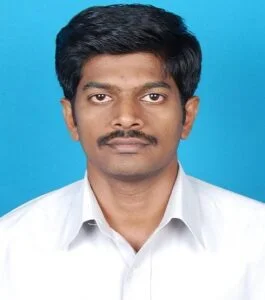 |
Dr. D. VAITHIYANATHAN
|
19.09.2017
|
14.07.2021
|
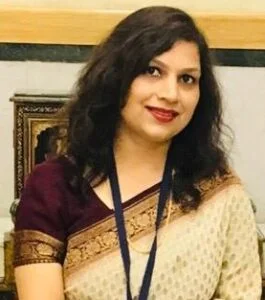 |
Dr. MANISHA BHARTI
|
15.07.2021
|
30.12.2022
|
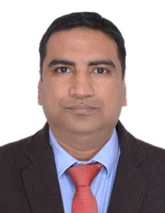 |
PROF. MANOJ KUMAR
|
31.12.2022
|
30.04.2024
|
 |
Dr. RIKMANTRA BASU
|
01.05.2025
|
Continuing
|
FACULTY MEMBERS
| Photo | Name | Details | Contact No. |
|---|---|---|---|
 |
Email: manojtaleja@nitdelhi.ac.in
Designation: Professor Qualification: Ph.D Specialization: VLSI Design, Analog/Digital and Mixed Signal Design, Low Power Design |
011-33861161
|
|
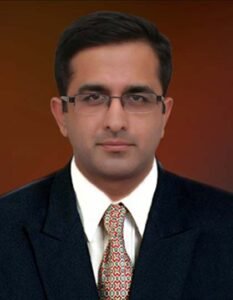 |
Email:jyoteesh@nitdelhi.ac.in
Designation:Professor Qualification:PhD Specialization: Machine learning, Next generation communication networks, signal processing, IoT |
-
|
|
 |
Email:rikmantrabasu@nitdelhi.ac.in
Designation:Associate Professor and Head Qualification:Ph.D. Specialization:Semiconductor Devices; Electronic Circuits & Devices; Optoelectronics & Optical Communication, Nano photonics etc. |
011-33861159
|
|
 |
Email:manishabharti@nitdelhi.ac.in
Designation:Associate Professor Qualification:M.Tech, PhD Specialization:Optical Communication Networks & Opto-electronics, Digital & Broadband Wireless Communication, RoF & FSO Communication, Electronic & Photonic Devices |
011-33861156
|
|
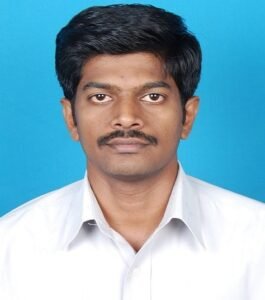 |
Email:dvaithiyanathan@nitdelhi.ac.in
Designation:Assistant Professor Qualification:M.E, PhD Specialization:Computer Architecture, VLSI Design and Embedded Systems |
011-33861154
|
|
 |
Email:sandeep@nitdelhi.ac.in
Designation:Assistant Professor Qualification:B.Tech.,M.Tech.,PhD Specialization:Digital Signal Processing, Bio-medical Signal Processing, Real-time Signal Processing |
011-33861155
|
|
 |
Email:nitinsingha@nitdelhi.ac.in
Designation:Assistant Professor Qualification:Ph.D. (IIT Kanpur) Specialization:Game Theory, P2P <networks, Blockchain, Social Networks |
011-33861160
|
|
 |
Email:sachinagrawal@nitdelhi.ac.in
Designation:Assistant Professor Qualification:B.E., M.E., Ph.D (Indian Institute of Information Technology Design and Manufacturing Jabalpur) Specialization:RF Energy Harvesting, Antenna and High Frequency Circuit Design |
011-33861158
|
|
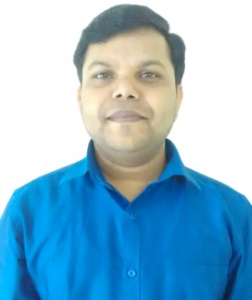 |
Email:dharmendra.jhariya@nitdelhi.ac.in
Designation:Assistant Professor Qualification:PhD(Indian Institute of Technology (IIT ) Kharagpur) Specialization:RF and Microwave Circuits (Ultra-Wideband Bandpass Filters, Filtantenna), Telecommunication Networks and Wireless Communication Systems |
011-33861157
|
|
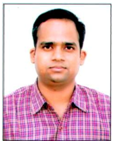 |
Email:ksmahesh@nitdelhi.ac.in
Designation:Assistant Professor Qualification:Ph. D(IIT Kanpur) Specialization:Computer Vision, Image and Signal Processing and Robotics |
011-33861153
|
|
 |
Email:preetiverma@nitdelhi.ac.in
Designation:Assistant Professor Qualification:Ph.D. Specialization: VLSI design, RF and Millimetre-Wave circuit Design, System-on-Chip with Embedded Antenna |
-
|
|
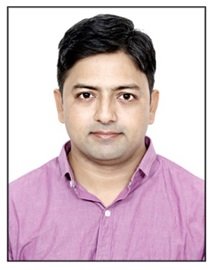 |
Email:manishverma@nitdelhi.ac.in
Designation:Assistant Professor Qualification:PhD Specialization: Solar Cells, Semiconductor compound materials, FinFETs and TFETs, Quantum modelling, VLSI Design. |
-
|
|
 |
Email: navneetgarg@nitdelhi.ac.in
Designation: Assistant Professor Qualification: PhD (IIT Kanpur) Specialization: Wireless communications, Signal Processing. |
-
|
|
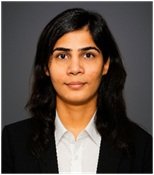 |
Email: Isha.kadyan@nitdelhi.ac.in
Designation: Assistant Professor (Contractual) Qualification: B.Tech(ECE), M.Tech(ECE) and Ph.D.(ECE Thesis Submitted) Specialization: Low power VLSI Design |
-
|
STAFF
| Photo | Name | Details |
|---|---|---|
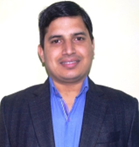 |
Mr. Surender Kumar
|
Email: surender@nitdelhi.ac.in
Phone No: 011-33861170 Designation: Senior Technical Assistant Qualification: M. Tech Specialization: Electronics and Communication Engineering |
 |
Mr. Kundan Kumar
|
Email: kundan@nitdelhi.ac.in
Designation: Technical Assistant Qualification: Diploma in Electronics Specialization: Electronics and Communication Engineering |
 |
Mr. Shivam Jaiswal
|
Email: sjaiswal@nitdelhi.ac.in
Designation: Technical Assistant Qualification: B.Tech Specialization: Electronics and Communication Engineering |
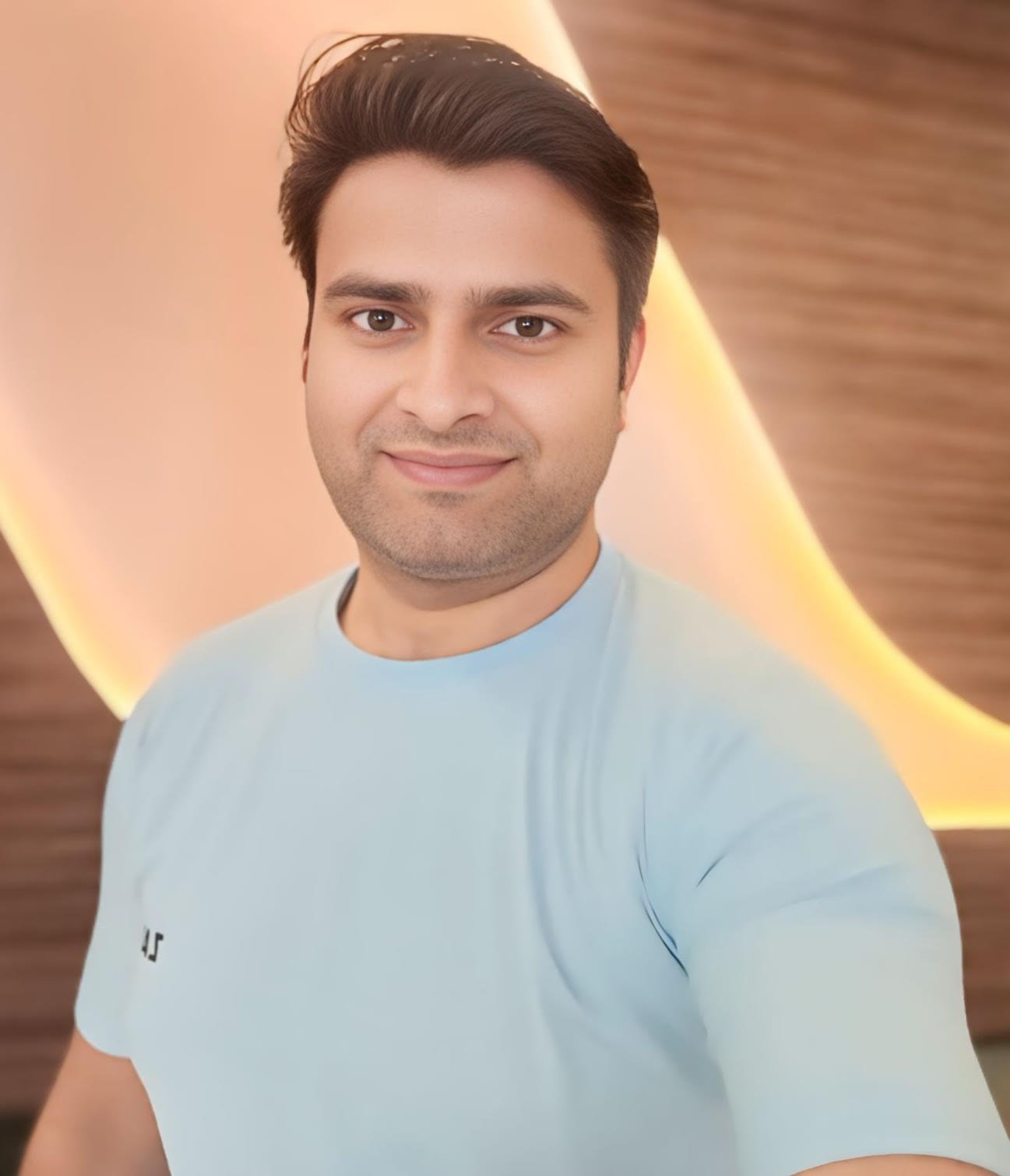 |
Mr. Hemant kumar
|
Email: hemantkumar@nitdelhi.ac.in
Designation: Technical Assistant Qualification: Diploma in Electronics Engineering and B. Tech(AMIE) in Electrical Engineering. Specialization: Electronics and Communication Engineering. |
 |
Mr. Sonu Baghel
|
Email: sonubaghel@nitdelhi.ac.in
Designation: Senior Technician Qualification: Diploma in Electronics Specialization: Electronics and Communication Engineering |
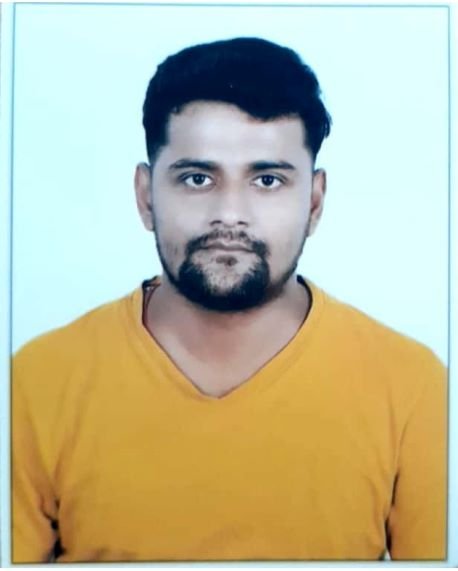 |
Mr. Amit Kumar Tiwari
|
Email: Amit.tiwari@nitdelhi.ac.in
Designation: Technician Qualification: B.Tech. (AMIE) Specialization: Electronics and Communication Engineering |
 |
Ms. Aditi Kandari
|
Email: aditi@nitdelhi.ac.in
Phone No: 011-33861151 Designation: Senior Assistant Qualification: M.LISc. Specialization: |
PROGRAM
The B. Tech. ECE programme provides students a strong foundation in the fundamentals of Electronics and Communications engineering through different courses offered in the B. Tech Curriculum. The program is supported by relevant, up-to-date curriculum, well equipped labs, and experienced faculty members. The curriculum has undergone a substantial revision, which incorporates the recent trends in analog and digital electronics, information and communication technology, microelectronics and VLSI design, artificial intelligence and internet of things. Minimum Credits requirements for completion of B. Tech. program is 160 and also offers provision of Major degree and Minor Degree for students by earning additional credits.
B. Tech. Program structure and curriculum: Click Here
The department runs 2 post-graduate programmes to cater to the ever challenging requirements of technical excellence in field of electronics and communication engineering. In addition to the undergraduate program in ECE, the department is playing an important role in producing world class postgraduates and scholars. The infrastructure and lab facilities are improved from time to time and provide the adequate opportunities for students and scholars to learn and innovate. The department has experienced faculty, all holding Ph.D. degrees from renowned institutes.
PG Programs:
1. M Tech ECE
2. M Tech ECE(VLSI)
M. Tech. Program structure and curriculum: Click Here
Department offers Ph.D. program in relevant areas of electronics and communication engineering. Department also offers Post-Doctoral Fellowship (PDF) Programme in the field of ECE.
The broad areas of research are:
1. Microelectronics and VLSI Design
2. Wireless and Optical Communications
3. Signal and Image Processing
4. RF and Microwave Engineering
5. Computer Networks
6. Electronics devices and circuits
R&D
Faculty and students of the Department of ECE are involved in research activities related to the electronics field and relevant to society and industry requirements. The broad areas of research are:
1. Microelectronics and VLSI Design
2. Wireless and Optical Communications
3. Signal and Image Processing
4. RF and Microwave Engineering
5. Computer Networks
6. Electronics Devices and Circuits
Institute provides financial assistance to its faculty and students to present the outcome of their research work in national and international conferences. Department of ECE regularly offers short term courses, faculty development programs, workshops, training programs etc. for students, research scholars, teachers and industry personnel. Department of ECE offers Ph.D. program and Post-Doctoral Fellowship (PDF) Programme in relevant areas of Electronics and Communication Engineering.
- Thrust Area of Research
- Consultancy ProjectsSponsored Research Projects
Project Title: Investigation of Group IV Semiconductor Alloy (Ge/Ge1-x Snx)/ Graphene based Detector Devices for Bio Medical and Defense Applications
Principal Investigator: Dr. Rikmantra Basu (PI):
Co-Principal Investigator:
Funding Agency: DST – SERB under Core Research Grant (CRG) Scheme
Date of Commencement: June 30, 2021- June 29, 2024
Duration: 3 Years
Project Ref. No.: CRG/2020/002966 dated June 30, 2021Project Title: History of Semiconductor Research in India History of Semiconductor Research in India
Principal Investigator: Dr. Rikmantra Basu (PI):
Funding Agency: Indian National science Academy (INSA)
Date: June 21, 2023 – June 20, 2024
Duration: 1 Year
Project Ref. No.: HS/ RC dated 26.06.2023Project Title: Captioning the Extracted events of the Scene from the Video through Spatio-Temporal Graph Model
Principal Investigator: Dr. Anurag Singh
Co-Principal Investigator: Dr. Mahesh K Singh
Funding Agency: Technical Innovation Hub, IIT Patna
Date of Commencement: April 2022
Duration: 3 years
Project Ref. No.:Project Title: Speech biometric based student authentication system
Co-Principal Investigator: Dr. Sandeep Kumar ( Joint Co-PI)
Funding Agency: NPIU (TEQIP-III), TEQIP Collaborative research scheme
Date of Commencement:18 June 2019
Duration: Completed 25 May 2022
Project Ref. No.: 1-5759041306Grants/Fellowship
1. Dr. Manoj Kumar received Young Faculty Research Fellowship (YFRF) of Ministry of Electronics & Information Technology, MeitY, Govt. of India.
Funding Agency: Digital India Corporation, Ministry of Electronics & Information Technology, MeitY, Govt. of India. - Consultancy Projects
- Consultancy ProjectsSponsored Research Projects
LABORATORIES
- Advanced VLSI Laboratory.
- Communication laboratory.
- Electron Devices and Circuits Laboratory.
- Instrumentation and Measurement Laboratory.
- Microprocessor and Microcontroller Laboratory.
- Optical Fibre Communication Laboratory.
- PG Research Scholar Laboratory.
- RF & Microwave Laboratory.
- System and Circuit Simulation Laboratory.
ALUMNI
For Alumni Registration Link: Click here

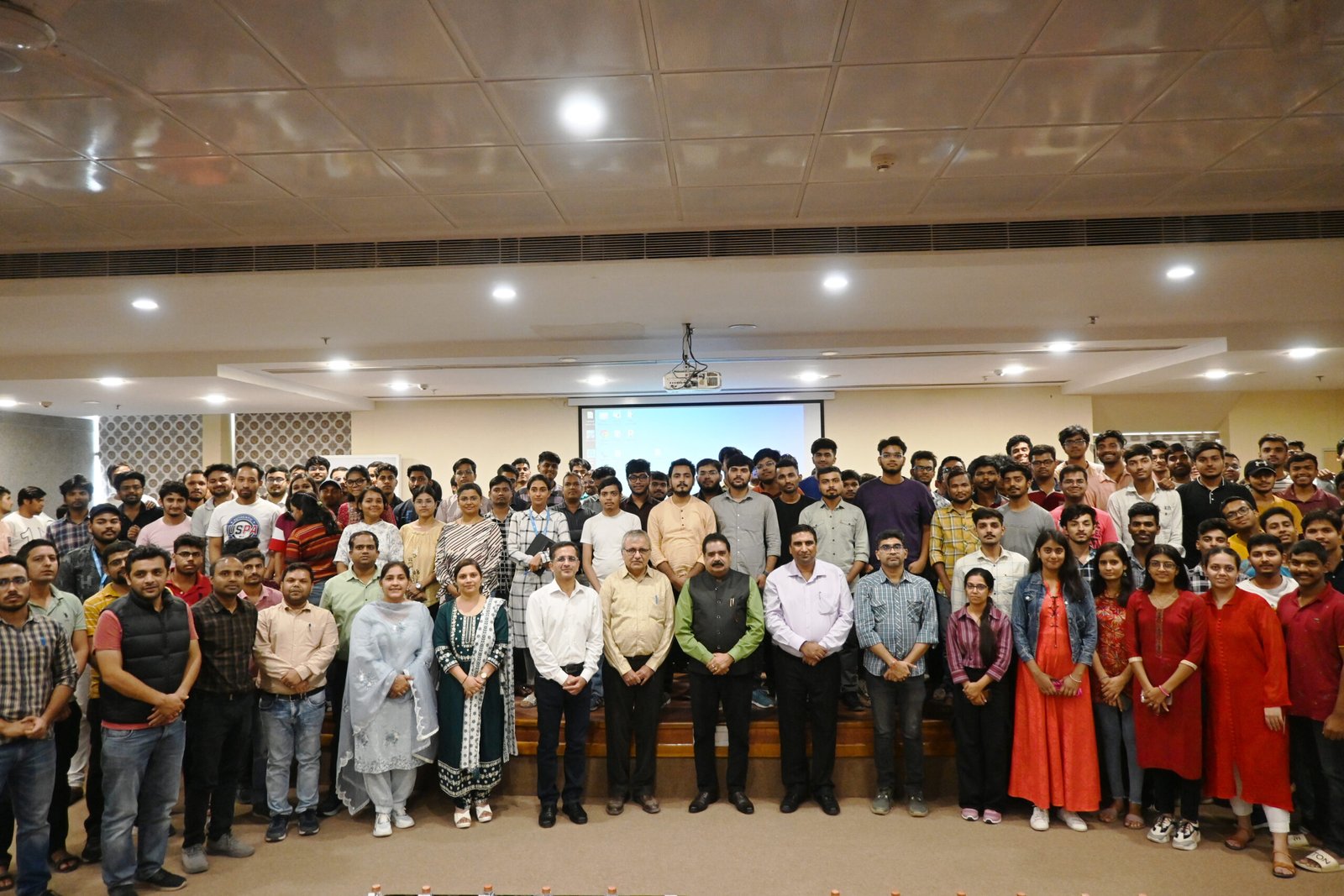



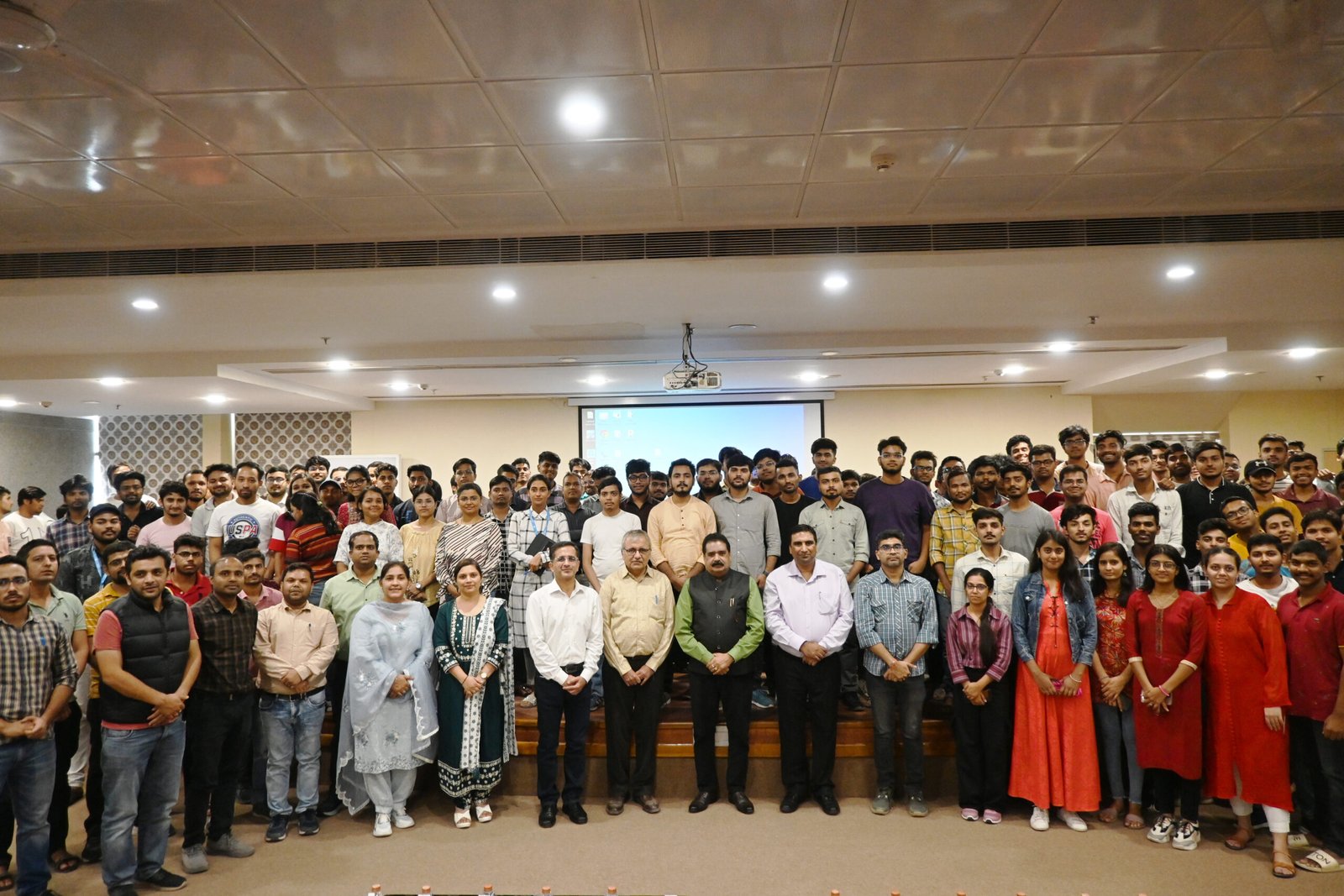
 Total Users : 619681
Total Users : 619681 Who's Online : 0
Who's Online : 0